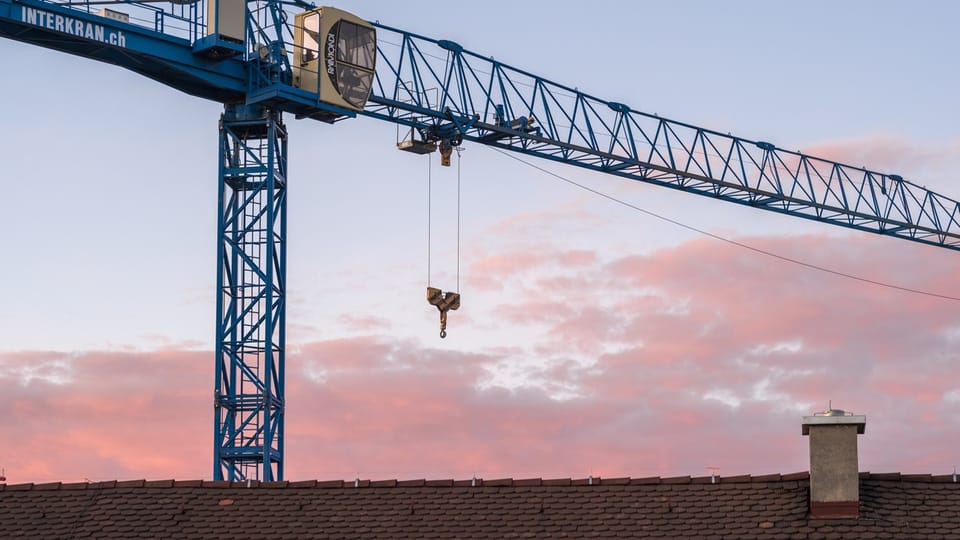For half of Zurich’s residents, living space is the city’s biggest problem. This is shown by the 2023 population survey. In order to solve the problem, an alliance of middle and center parties has launched a popular initiative that will renovate buildings in the city want to increase the floor. The Zurich head of building construction André Odermatt comments on the initiative and the urban development future of Zurich in an SRF interview.
SRF News: The issue of “living space” is a concern for the people of Zurich. Where are the affordable apartments in the city?
André Odermatt: The city is very active in taking measures to achieve the third goal (see box). And you shouldn’t forget that we already have a good quarter of non-profit housing in Zurich. This is a very high proportion across Switzerland. In order to further increase this proportion, we are building apartments ourselves with large projects – for example in Eichrain, in Leutschenbach or at Escher-Wyss-Platz. That’s several hundred apartments. We also support cooperatives with building rights and negotiate with private individuals. It’s about acquiring land or real estate.
In order to address the problem of scarce living space, an alliance of middle and middle-class parties has launched a popular initiative. Buildings should be able to be raised by one floor.
The concern is not new. There has already been a motion from the citizens that was rejected by a majority in the Zurich municipal council. The reasons that led to the rejection must also be carefully examined here.
We have many neighborhoods in the city with different identities. The initiative now wants an increase in all residential zones, i.e. a kind of watering can across the entire city. And that doesn’t do our neighborhoods justice. We have a municipal master plan that identifies areas in which densification can be achieved. And this increase idea would have to be limited to these areas. There are also building law questions regarding the amount of the increase.

Legend:
An increase in the number of buildings would have to be done in accordance with Zurich’s neighborhoods, says building construction manager André Odermatt.
Keystone/Petra Orosz
Adding floors to buildings can be a softer version of more living space. However, if a complete renovation is carried out in this context, there will still be layoffs. And you have to carefully consider what this would mean.
Left-wing parties in particular fear that increasing the number of buildings will lead to more core renovations and thus more expensive, not cheaper, living space. As building construction managers, where do you see an opportunity to further densify the city?
The municipal master plan identifies areas in which high-quality densification can be achieved. But there, too, questions arise: Do you go one floor higher? Or two? But what is very important is that you have to find a process how – if necessary – buildings can be demolished in a socially acceptable way. That means: replacement offers are needed, the construction project needs to be phased in stages.

Legend:
Zurich’s head of building construction, André Odermatt, is convinced that the proportion of non-profit housing will be around 50 percent in 2074.
Keystone/Alexandra Wey
What will the city of Zurich look like in terms of urban development in 50 years?
We will still have very clearly recognizable quarters, very nice Wilhelminian-style quarters. We will have greener neighborhoods that have been structurally renewed. And we will have significantly more affordable housing. I am convinced that in 50 years we will not be at a third, but at 50 percent.
The interview was conducted by Nicolas Hofmann.
